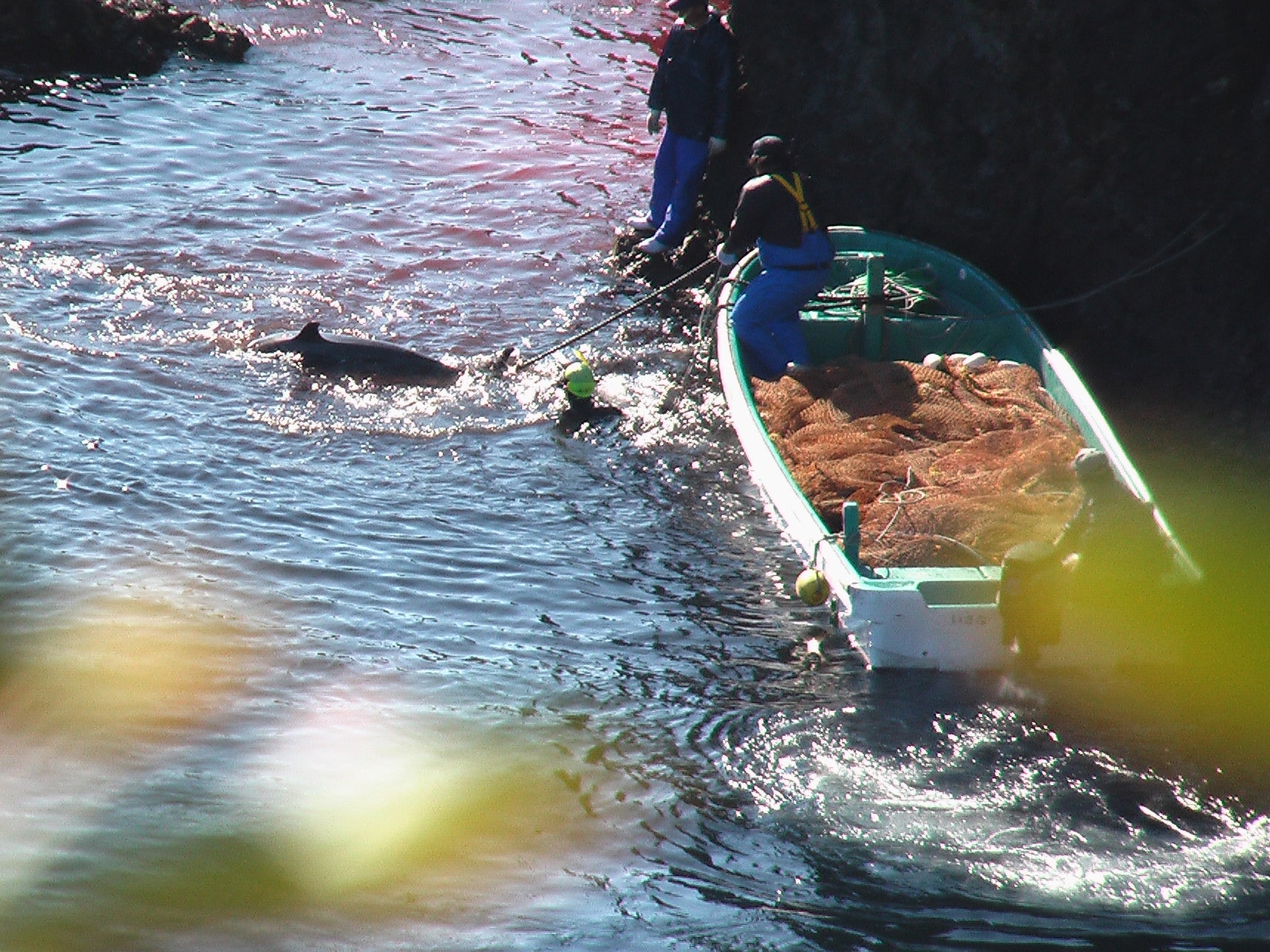Dolphins’ psychological trauma after being hunted for marine parks revealed in new research
‘If you see what they are doing, it doesn’t take a PhD to say “this is inhumane”’
Your support helps us to tell the story
From reproductive rights to climate change to Big Tech, The Independent is on the ground when the story is developing. Whether it's investigating the financials of Elon Musk's pro-Trump PAC or producing our latest documentary, 'The A Word', which shines a light on the American women fighting for reproductive rights, we know how important it is to parse out the facts from the messaging.
At such a critical moment in US history, we need reporters on the ground. Your donation allows us to keep sending journalists to speak to both sides of the story.
The Independent is trusted by Americans across the entire political spectrum. And unlike many other quality news outlets, we choose not to lock Americans out of our reporting and analysis with paywalls. We believe quality journalism should be available to everyone, paid for by those who can afford it.
Your support makes all the difference.Dolphins are being left traumatised by cruel hunting practices used to supply the international trade in marine mammals for water parks, scientists have warned.
As intelligent animals that many experts believe are capable of complex thoughts and even grief, conservationists say there is no place for the routine capture and slaughter of dolphins in Japan.
In the drive hunts that take place near the town of Taiji, dolphins and small whales are herded from the open sea using a fleet of fishing vessels.
Hunters create a wall of underwater noise by banging hammers and rods, disorientating the creatures and driving them into a small cove.
There, some of the dolphins are slaughtered for their meat, while others are captured alive to be sold to dolphinariums in Japan, China and a handful of other nations.
In a new study, a team of psychologists, veterinarians and conservationists lay out the evidence based on years of behavioural and physiological data for widespread trauma that goes beyond the killing of dolphins.
“The stress and acute trauma resulting from being chased at sea, driven towards shore, corralled by speed boats and then violently handled during the selection process, is profoundly inhumane,” said study leader Courtney Vail, from environmental consultancy the Lightkeepers Foundation.
Even the individuals that are released following the hunt or evade capture are likely to be profoundly influenced in ways that could throw groups of these highly social creatures into disarray.
Additional trauma comes as mothers are separated from calves, and any young dolphins left without a parent after the hunt are unlikely to survive.
“Survivors that witness the capture and killing of close pod mates are likely to be caused significant stress,” said co-author Philippa Brakes, a research fellow at charity Whale and Dolphin Conservation.
The Taiji drive hunts achieved infamy after the success of the 2009 Oscar-winning documentary The Cove, which included footage of dolphins being slaughtered with knives and spears.
Despite the international outcry that followed the film’s release, the hunts have continued.
Official figures show that in the hunting season that ended in February, nearly 600 dolphins have already been killed, and nearly 250 taken into captivity.
Dr Diana Reiss, who initially tipped the filmmakers behind The Cove off about the practice, has been researching dolphin intelligence and self-awareness for over 40 years.

The new paper published in the Journal of Applied Animal Welfare Science, which she co-authored, supports the idea that drive hunts, which are also practised in the Faroe Islands, are inherently inhumane.
“This practice flies in the face of all welfare practices that are done in other countries,” said Dr Reiss, who is based at Hunter College.
According to Ms Brakes, the discussion about the trauma inflicted on the many more animals that are not captured and killed has so far largely been missing from the policy debate.
She said she hoped their findings would help end the capture of these animals for use in aquaria by drive hunting – a practice that has already faced criticism from many zoo organisations.
Last month campaigners from Australia and Japan launched the first legal challenge against the Taiji dolphin hunt, arguing they contradict the nation’s own animal cruelty laws.
It comes after Japan faced international condemnation at the end of 2018 for announcing its intention to withdraw from the International Whaling Commission and resume hunting in its waters.
“If you see what they are doing, it doesn’t take a PhD to say ‘this is inhumane’,” said Dr Reiss.
“The arguments by the fishermen and the government are that it is humane, and I don’t know how they can say that.”
The Independent has contacted the Japanese Ministry of Agriculture, Forestry and Fisheries for comment.

Join our commenting forum
Join thought-provoking conversations, follow other Independent readers and see their replies
Comments